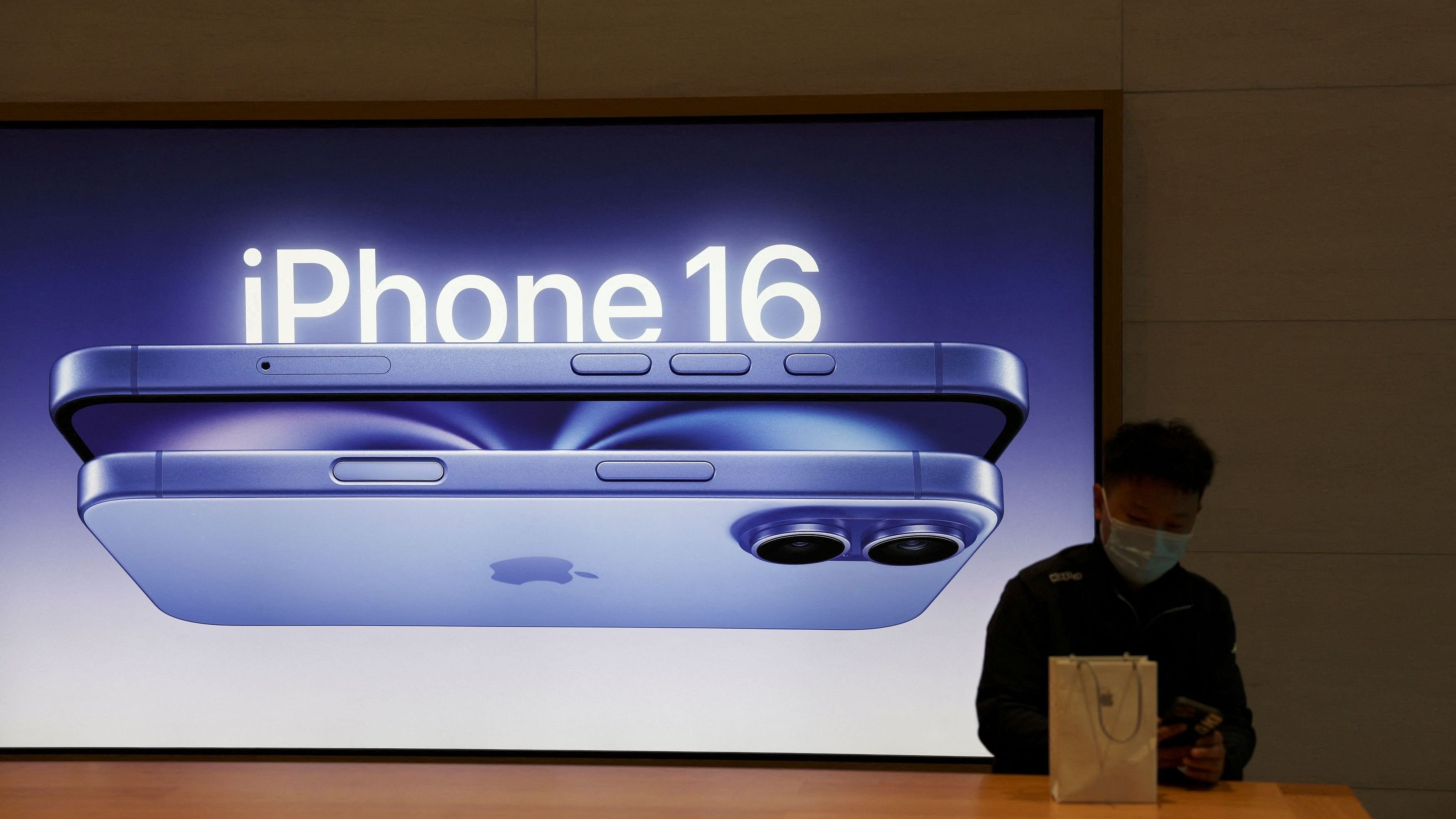
A man sits next to an iPhone 16 advertisement as the new iPhone 16 series smartphones go on sale at an Apple store in Beijing, China.
Credit: Reuters Photo
By Mark Gurman
Apple Inc. is facing an unprecedented challenge: persuading customers to buy its latest iPhones without their biggest new feature.
On Friday, Apple is launching the iPhone 16 lineup in almost 60 countries, including the US, China, India, Australia and South Korea. But the device won’t come installed with Apple Intelligence — the much-anticipated AI software that the company has been touting since June. That means users will have to download the software features over time as they become available during the coming weeks and months.
That’s put Apple in a tricky spot. It’s already marketing the AI features heavily, but some consumers may hold off on buying the new phones if they can’t enjoy the benefits right away. The new iPhone hardware, meanwhile, has only modest upgrades from prior models. A touch-sensitive Camera Control button that makes it easier to take pictures and video is the most notable change.
Even so, Wall Street remains bullish that Apple can accelerate growth during the all-important holiday season. Analysts estimate that revenue will increase 8 per cent in the December quarter — the best showing for that period since the end of calendar 2021.
Credit: Bloomberg
The new lineup includes two standard models — the 16 and 16 Plus — as well as the higher-end Pro and Pro Max. Preorders of the devices began last week, with shipments to stores and customers getting underway Friday.
It’s rare to see huge crowds of iPhone shoppers at Apple stores these days, but some diehard fans have lined up at locations around the world. The big question will be whether ordinary consumers snap up the new model as well.
The initial units going on sale will run iOS 18 operating system, but Apple Intelligence will require an over-the-air update to the iOS 18.1 software, which is launching in October.
Apple Intelligence was announced in June at the company’s Worldwide Developers Conference and has been available in a limited beta test for developers for the past several weeks.
On Thursday, Apple released a public beta version of Apple Intelligence — one aimed at a wider audience — though most customers won’t access it until the suite of features is released in its final form next month. Additional capabilities won’t be ready until later, part of a staggered launch that will stretch into next year.
When the technology titan introduced the iPhone 16 line, it said that the devices were the first to be built “from the ground up” for Apple Intelligence. But some iPhones from last year — the 15 Pro and Pro Max — will be able to support the features as well.
Read More: Apple Looks to Entice iPhone 16 Shoppers With Not-Quite-Ready AI
The look of the new phones is little changed from the iPhone 12 design from 2020. But they feature noticeable battery-life improvements and camera advancements — beyond the new button. Prices start at $799 for the standard iPhone, ranging up to $1,199 for the Pro Max.
In past years, consumers ordering phones from Apple’s online store have seen major shipping delays — a sign that supply wasn’t meeting demand. That’s been less of an issue this year, either because orders are slower or Apple just has more phones on hand.
New orders of the regular iPhone 16 models will be delivered by early October, while the Pro versions will arrive around the middle of the month.
Apple also unveiled lower-end AirPods this month and updated watches. The new earbuds — dubbed AirPods 4 — are available in a $129 and $179 versions, with the latter model including noise cancellation. That feature had previously been reserved for the upscale AirPods Pro, which cost $249.
Apple’s latest smartwatches, meanwhile, don’t offer a major reason to upgrade. The new Series 10 has a larger display and thinner design, but otherwise looks similar to the Series 9. The company’s only change to the higher-end Ultra model, meanwhile, is a black color option. Still, the products could attract customers who have older Apple Watches or are new to the category.
The iPhone, watches and AirPods won’t be the last new Apple products of 2024. The company also is planning a major Mac computer overhaul later this year.
Apple will bring its AI-focused M4 processor from the iPad to the MacBook Pro laptops and iMac desktop. It’s also preparing the most significant overhaul to the Mac mini in the product’s two-decade history, complete with a smaller design and new chips.